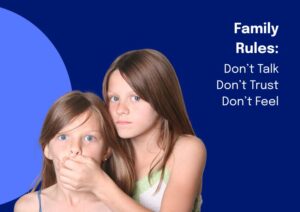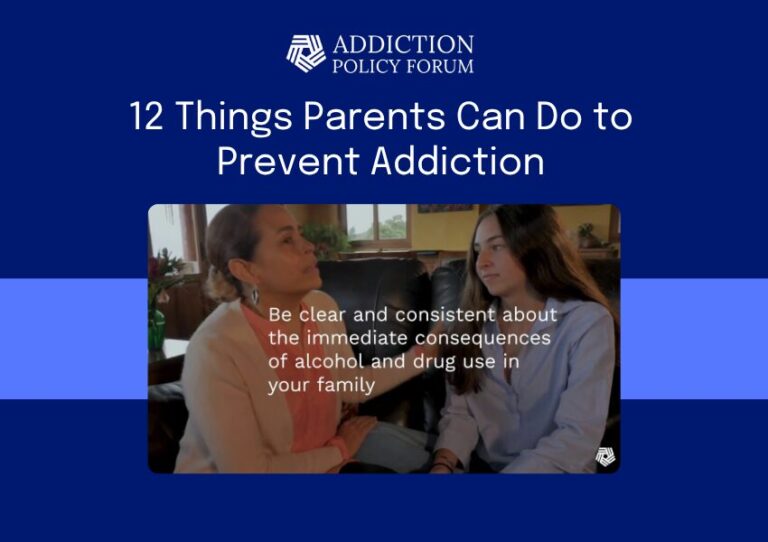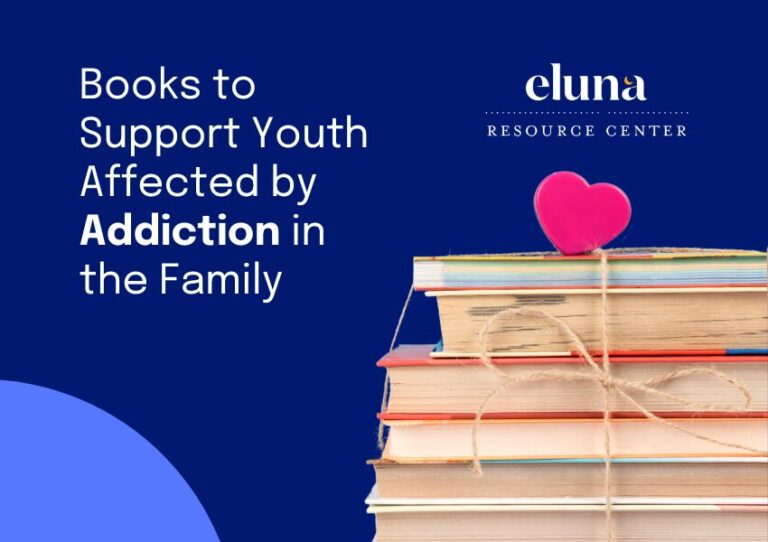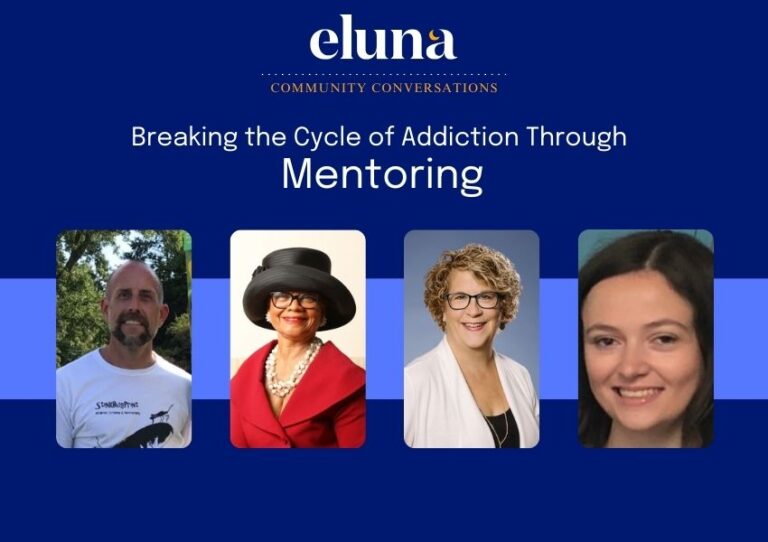Family Rules: Don’t Talk, Don’t Trust, Don’t Feel

Family Rules
Click here for the article in Spanish
Dr. Claudia Black is an expert in co-dependency and addiction focusing on addictive disorders and family systems. Dr. Black is recognized for her work worldwide and continues leading, teaching, and instructing on issues surrounding addiction. In her book, It Will Never Happen To Me, Dr. Black addresses three major rules that exist within families when someone has a chemical dependency; don’t talk, don’t trust, and don’t feel. Children can be silenced overtly or passively. As keen observers, children quickly learn how to repress their emotions by witnessing the actions of the adults in their lives. Generally it seems the effects of these rules begin to negatively express themselves starting in the early to mid-twenties. These rules are being established in most areas of the adult child’s life which can result in relationship and employment challenges as well as issues in other areas of their life. It is important to understand the rules, recognize them, and begin to reshape the way the dynamics have been played in the family. Dr. Black explains the roles and provides recommendations to help begin to change the way feelings are expressed.
1. Don’t Talk: Fueled by fear and control, this rule starts out by rationalizing and making excuses for the addiction; rationalization over time makes the addiction normal. In some families there is not even excuse making, but rather there is nothing said about the addiction. This typically occurs when family members want to mask the hurt and not talk about the alcohol abuse and if they do not talk about it, the addiction may just go away. Prolonged exposure to these behaviors, can cause children to fear that they will not be believed if they talk. In addition, they do not know how to talk to others about a parent’s addiction.
2. Don’t Trust: Trust is based on confidence, faith, and reliance. Children need security and focused attention to feel like they have support for whatever they are going through. These components are often missing in a home where there is a chemical addiction. Children become confused from their parents’ mixed messages due to the addiction. Identifying the absence of trust in a child is not difficult. Often children who do not trust feel suspicious or confused by focused attention or kind acts from their parents. Psychological and/or physical safety are often missing in addictive households which produces mistrust. .
3. Don’t Feel: The “don’t talk” and “don’t trust” rules contribute directly to a child’s inability to share or express their feelings. Children living with an addicted parent are often in such desperation that they find the only way to cope is by repressing (ignoring, restraining, or hiding) their feelings or just not feeling anything at all.
Other rules include:
- don’t think (just don’t think about what is going on);
- don’t question (don’t question what is happening);
- don’t ask (don’t ask for anything or expect anything);
- don’t play (be mature);
- don’t make a mistake (mistakes are not tolerated)
Identifying and combating these rules can be challenging. However once identified, there are ways to re-integrate talking, trusting, and feeling in the family.
1. Don’t Talk: As an adult child, an alcoholic parent, or the non-alcoholic parent, if you feel any guilt, confusion, or shame from your own childhood or addiction it is important you talk about it. If you fear sharing your past because you think someone will not believe you, talk about your past. If you were told not to talk, had negative experiences around addiction topics, or believe nothing good will come from talking you need to talk to someone about your past. To combat the “don’t talk” rule begin by making a list of people you remember talking to as a child (if any). Then make a list of people that you would willingly talk about your childhood with today.
2. Don’t Trust: Faith, confidence, and reliance are key components in a trusting relationship. Introducing trust into the family takes time and effort but can be accomplished. Start by implementing family time such as a dinner each night or breakfast each morning. Consistently enforcing family time each day will help build reliance. Listen and validate your child’s feelings. Maybe during these meals have everyone share their high point and low point of the day. This will create open and honest communication that will provide an opportunity for you as the parent to listen to your child. A child needs focused attention from their parent to have a trusting relationship; consistently providing this each day will strengthen their trust. These are just a start of things you can begin to implement in your family to combat the “don’t trust” rule.
3. Don’t Feel: In order to overcome the “don’t feel” rule begin to view your feelings as your friends. Feelings are neither good or bad; they are merely signals to indicate something. As you begin realizing it is okay to feel, simply recognizing and identifying when and what you are feeling is a huge accomplishment. Constructively expressing your feelings once you accept and identify them will lead to greater confidence and decrease the fear you have developed around feeling. When you learn to identify, accept, and express your feelings you may start to notice patterns which will lead to further recovery and growth which will result in combating the “don’t feel” rule in your life.
Dr. Claudia Black was a formative partner in the creation of Eluna’s Camp Mariposa program. For a more in-depth exploration of these ideas, here is a link to purchase Dr. Claudia Black’s book It Will Never Happen To Me.


